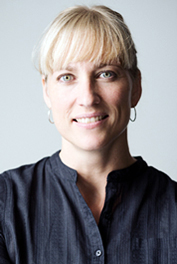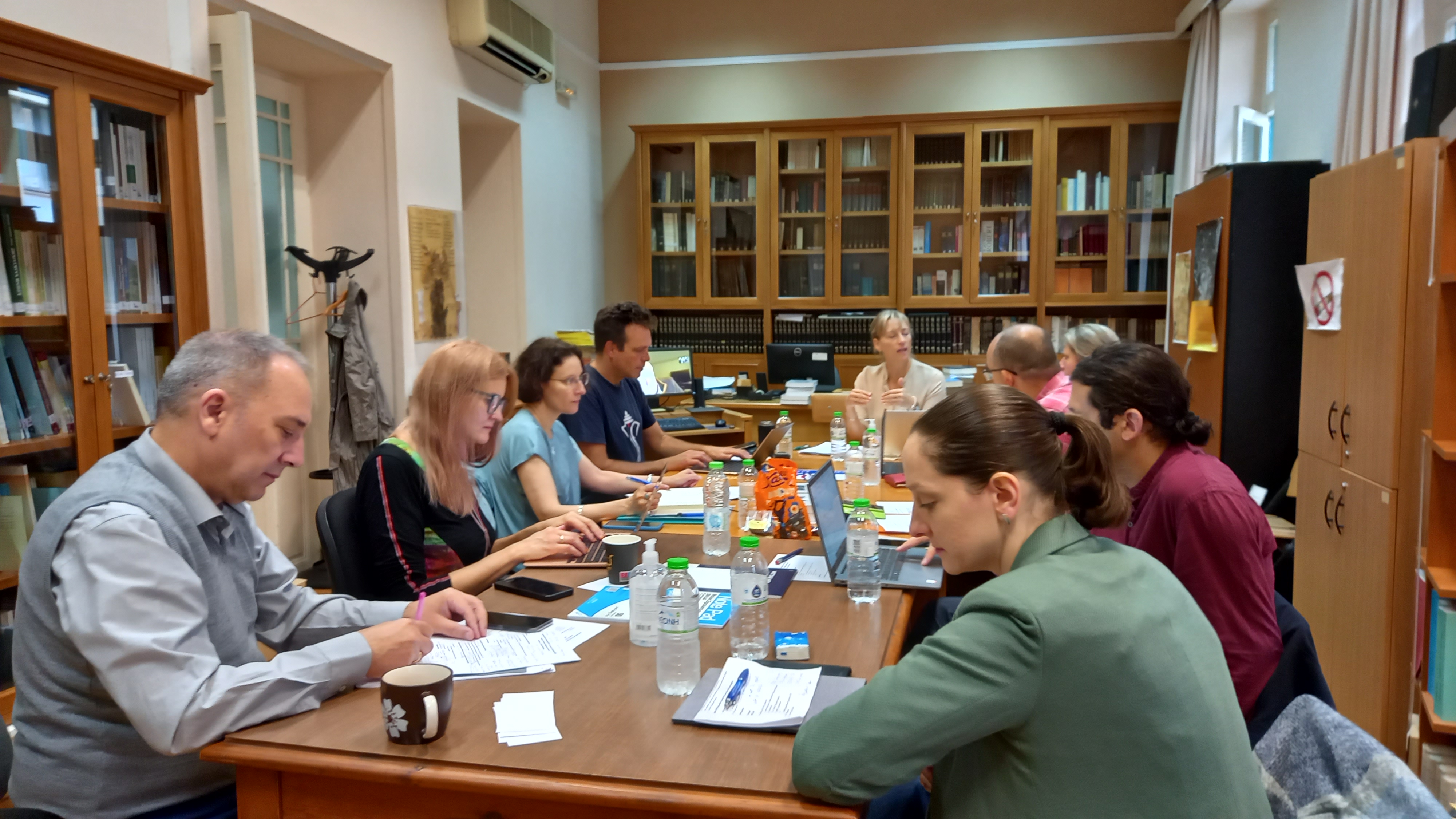
Marie Sandberg
Letter of the President
Marie Sandberg summarises recent SIEF activities and introduces the task forces of the Executive Board.
Dear SIEF Colleagues,
It has been 1,5 years since the new Executive Board of SIEF was appointed at the Helsinki Conference GA in June 2021; however, due to Covid-19 it was only recently, that we had the chance to meet face-to-face for the first time. It was much appreciated to finally get together during two days in late October 2022 at the Hellenic Folklore Research Center in Athens – a meeting generously hosted by the Director and SIEF Board member Evangelos Karamanes.
SIEF’s principal mission is to gather scholars and facilitate scholarly exchange in the community of ethnology, folklore, and adjacent fields; to provide platforms for critical debate, networking, and exchange; to build infrastructures for intellectual cooperation; to publish and promote excellent scholarship; and to move forward the fields that we represent. Our mission statement has now been updated, with the important amendment that SIEF is also working to encourage cultural dialogue and open communication across boundaries, borders, and disciplines while highlighting lessons of the past – a goal more important than ever with old divisions reappearing in Europe and beyond. To enhance the awareness of diversity, equity, and inclusion (DEI), we also have made DEI part of our overall mission statement, you can read more about an upcoming DEI seminar below. If you would like to visit our mission statement, I kindly invite you to look especially at our Goals and Strategies: What We Do [and what we would like to do]: https://www.siefhome.org/about/mission.
The main goal of the Athens meeting was to plan the upcoming SIEF conference on June 7–10, 2023, which will take place in Brno, Czech Republic. In close cooperation with the local scientific committee and with the skilled leadership of SIEF Board member Jiří Woitsch, the scientific committee has worked hard on the program, which will be exploring the theme of Living Uncertainties. I can assure you that there is much to be looking forward to! The conference call for papers is open until January 10, 2023. Please check out the conference theme here: https://www.siefhome.org/congresses/sief2023/.
We look forward to your paper submissions!
Further exciting news: I am happy to announce that the SIEF board has approved a new working group on Feminist Approaches in Ethnology and Folklore led by JoAnn Conrad and Dagrún Ósk Jónsdóttir. We welcome this working group very much – it will provide much-needed perspectives and discussions to the SIEF community. We consider the instantiation of this WG as part of a more general aim of presenting SIEF as a welcoming space for underrepresented scholarly communities and researchers. To enhance the awareness of diversity, equity, and inclusion, we have made DEI part of our overall mission statement, as stated above.
The remaining part of this letter is devoted to a presentation of (a selection of) the task forces of the Executive Board, to give you an idea of what to expect in the future. We have several, exciting projects in the pipeline, such as a 2nd Culture in Dialogue Online Seminar, a new SIEF podcast, and scientific cooperation initiatives.
Please do not hesitate to get in touch with us; comments, questions and suggestions are most welcome!
Yours cordially,
Marie Sandberg
President of SIEF
-
DEI task force: Diversity, Equity, and Inclusion in European Ethnology and Folklore Studies
One way of approaching our central idea to ensure diversity, equity, and inclusion (DEI) in our scholarly fields is to look back through our disciplinary histories and acknowledge the role European ethnology and folklore studies have had as knowledge producers in the past. Doing so can help show how scholars generated knowledge that was ultimately used by authorities in ways that were unfavorable, exploitative, and directly hurtful to the communities studied, including indigenous groups such as the Sámi, Inuit, Roma, and indigenous peoples of the former Soviet Union. It is important to consider the difficult heritage of the Nazi era, as well as the different roles our disciplines have played in various political regimes, such as ethnology/folklore studies during the Soviet-era in Central and Eastern Europe after WWII, or the abuse of ethnographic knowledge in the wars in former Yugoslavia in the 1990s. Reading our disciplinary histories through the DEI lens shows that we must actively work to avoid making the same mistakes again.
SIEF will thus organize an online workshop in autumn 2023, focused on the difficult aspects of the histories of our disciplines. The workshop will provide a platform to discuss how our disciplines approach DEI and how we wish to work with these issues in the future. Please contact us if you have further ideas or suggestions for this workshop; a call will be announced during spring 2023.
-
Scientific Cooperation task force
The task force is working on a number of initiatives to build academic bonds and collegiality across our disciplines. Many European academies have reciprocal exchange programmes upon which we hope to build, in order to foster dialogue and enable sharing between scholars at different stages of their careers. Staff mobility is an important issue as it enables scholars to see more of each other’s institutional workings. With that in mind, we are working to increase and develop cooperation between SIEF and other kinds of learned societies. It will be useful, for example, to create a mid-level infrastructure which could include national and regional scientific societies in Ethnology, Folklore, and related disciplines, in addition to our close with sister organizations such as AFS, AAA, and EASA. These developments, in turn, could feed into informational networks around members’ expertise, potential academic partners for projects and grant applications, and experts for policy makers and the media.
-
Communications task force
Communication is one of the central elements which holds our organization together and helps to raise awareness of our fields and their societal relevance. SIEF hosts a website, makes use of social media, and publishes a biannual newsletter with current information on the society, its working groups, conferences, and publications, as well as other relevant information. During the last couple of months, SIEF has developed an interactive digital version of its newsletter in which each item can be read separately by clicking on a link – ideal for mobile phone users. The successful film series that SIEF has produced since 2014 will be followed up by a series of podcasts introducing scholars, themes and books in our fields. SIEF continues to support the open access journals Ethnologia Europaea and Cultural Analysis.
-
Higher Education task force:
In recent years, SIEF has made efforts to collect, document, and visualize information on higher education in Ethnology, Folklore, and related fields, a work that materialized in the mapping project on the SIEF homepage, now updated in partnership with the American Folklore Society to better reflect our global disciplines. The new Board’s Higher Education task force is developing three themes built on this legacy, aiming bring our higher education programs into closer dialogue with each other: (1) developing networks and a directory of experts based on the mapping data, to facilitate Knowledge Transfer; (2) facilitating staff and student exchanges based on shared curricula, culminating in a series of pre-conference training workshops in the lead up to SIEF 2025 and beyond; and (3) developing a SIEF book series.

SIEF Board at work. Athens, October 2022




